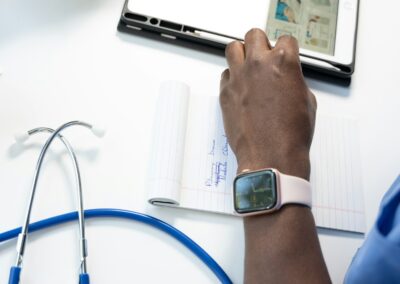Ensuring Real-Time Updates to Patient Records
Effective Communication and Data Sharing
Effective communication and data sharing are crucial components of successful healthcare delivery. The integration of HIEs with EHR systems facilitates better communication between healthcare providers by ensuring that patient data is readily available and up-to-date. This is particularly important in emergency situations where timely access to accurate information can be lifesaving. In the context of Saudi Arabia and the UAE, promoting effective communication through integrated healthcare systems can lead to more efficient and coordinated care. By eliminating data silos and fostering a culture of collaboration, healthcare providers can improve patient outcomes and enhance the overall quality of care.
Benefits of Integrating HIEs with EHR Systems
The integration of Health Information Exchanges (HIEs) with Electronic Health Record (EHR) systems is transforming the healthcare landscape by enabling real-time updates to patient records. This integration ensures that healthcare providers have the latest information at their fingertips, enhancing the quality of care delivered to patients. In regions such as Saudi Arabia and the UAE, where healthcare systems are rapidly advancing, this technological synergy is particularly impactful. By providing seamless access to up-to-date patient data, healthcare professionals can make more informed decisions, reduce medical errors, and improve patient outcomes. This integration also facilitates better coordination among healthcare providers, ensuring that every member of a patient’s care team is informed and aligned.
Utilizing Advanced Technologies for Enhanced Healthcare
The incorporation of advanced technologies like Artificial Intelligence (AI) and blockchain further enhances the benefits of integrating HIEs with EHR systems. AI can analyze real-time patient data to provide predictive analytics and personalized treatment plans, thereby improving patient care. Blockchain technology ensures the security and integrity of patient records, making data breaches and unauthorized access virtually impossible. In cities like Riyadh and Dubai, where there is a strong emphasis on innovation and technological advancement, the adoption of these technologies in healthcare systems can significantly boost efficiency and reliability. This not only enhances patient trust but also supports the overall goal of achieving business success in the healthcare sector.
Driving Change Management with Integrated Systems
Implementing integrated HIE and EHR systems requires a strategic approach to change management. Healthcare leaders must navigate the complexities of adopting new technologies while ensuring that all stakeholders are engaged and supportive. Executive coaching services can provide valuable support, equipping leaders with the skills and insights needed to manage this transition effectively. In dynamic markets like Riyadh and Dubai, where healthcare innovation is a priority, effective change management is essential for the successful implementation of integrated systems. By fostering a culture of adaptability and continuous improvement, healthcare organizations can fully realize the benefits of these technologies, leading to improved patient care and business success.
The Role of Management Consulting
Management consulting firms play a crucial role in helping healthcare organizations adopt integrated HIE and EHR systems. These firms offer expertise in strategic planning, process optimization, and technology integration, guiding healthcare providers through the complexities of system implementation. In regions like Saudi Arabia and the UAE, where healthcare systems are undergoing rapid modernization, management consultants can help organizations develop robust strategies that align with their goals and objectives. By leveraging the insights and experience of management consultants, healthcare providers can navigate the challenges of technology adoption, ensuring that patient care is prioritized and business success is achieved.
Leadership and Management Skills for Successful Integration
Successful integration of HIEs with EHR systems requires strong leadership and management skills. Healthcare leaders must be able to guide their organizations through the various stages of system adoption, from initial planning to full-scale implementation. This involves not only technical expertise but also the ability to inspire and motivate staff, foster a collaborative culture, and manage resources effectively. Executive coaching services can help healthcare leaders develop these essential skills, providing them with the tools they need to lead their organizations to success. In the competitive healthcare landscapes of Saudi Arabia and the UAE, strong leadership and effective management are critical to realizing the full benefits of integrated systems, enhancing patient care, and achieving business success.
Future Directions and Opportunities
The future of integrated HIE and EHR systems holds exciting opportunities for further enhancing healthcare delivery. As technologies like generative AI and the metaverse continue to evolve, they can be integrated with these systems to provide even more sophisticated and personalized care. For example, generative AI can assist in creating detailed patient profiles and predicting health trends, while the metaverse can offer virtual environments for patient consultations and treatment planning. By staying at the forefront of these technological advancements, healthcare providers in Saudi Arabia and the UAE can continue to improve the quality and efficiency of care, ensuring better health outcomes for their populations.
#IntegrationOfHIEs #HealthInformationExchanges #EHRSystems #AIInHealthcare #BlockchainInHealthcare #CollaborationInHealthcare #EffectiveCommunication #ExecutiveLeadership #ManagementConsulting #HealthcareInnovation #SaudiArabiaHealthcare #UAEHealthcare























